
The Parts of a Western Saddle
Test your skills on labeling the parts of the saddle and bridle for both English and western riding! Fill in each part on the diagrams, then check your work with the answer key below. These illustrations are reprinted with permission of the Certified Horsemanship Association and illustrator Susan Harris. They are part of Level 1 of the

Interactive Western Saddle Parts Diagram Horses Pinterest Western
Parts of a Saddle. Cantle: This is the back of the saddle, usually curved, that provides the rider with a secure and comfortable seat. Skirt: This is the leather or synthetic material that covers the saddle tree.It is designed to protect the rider's legs from the tree and to keep the saddle secure on the horse's back.
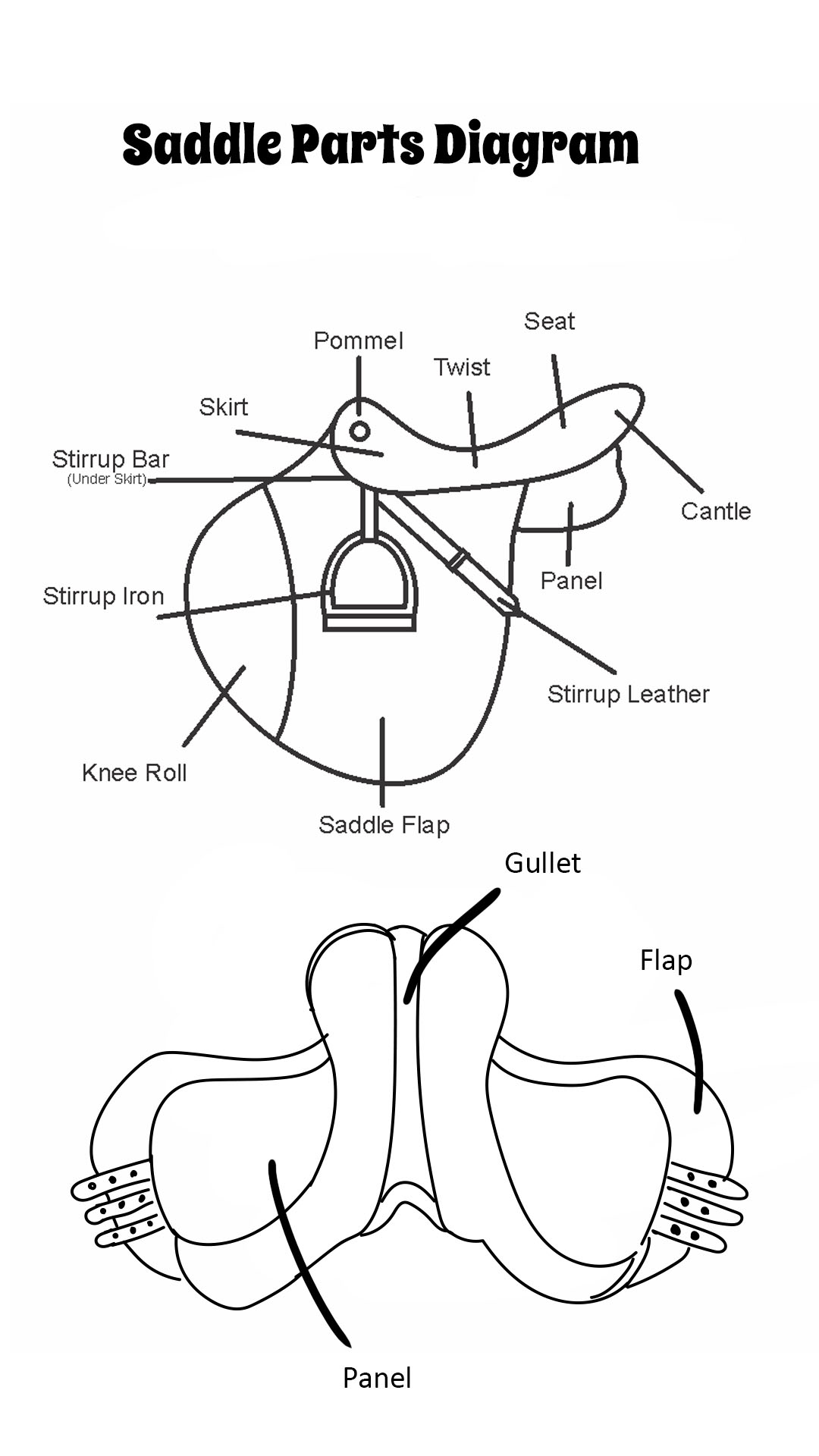
17 Best Images of Saddle Worksheets Printable Part Western Saddle
Join Ashley as she discusses the different parts of a western saddle, important knowledge for anyone interested in communicating properly with other horsebac.
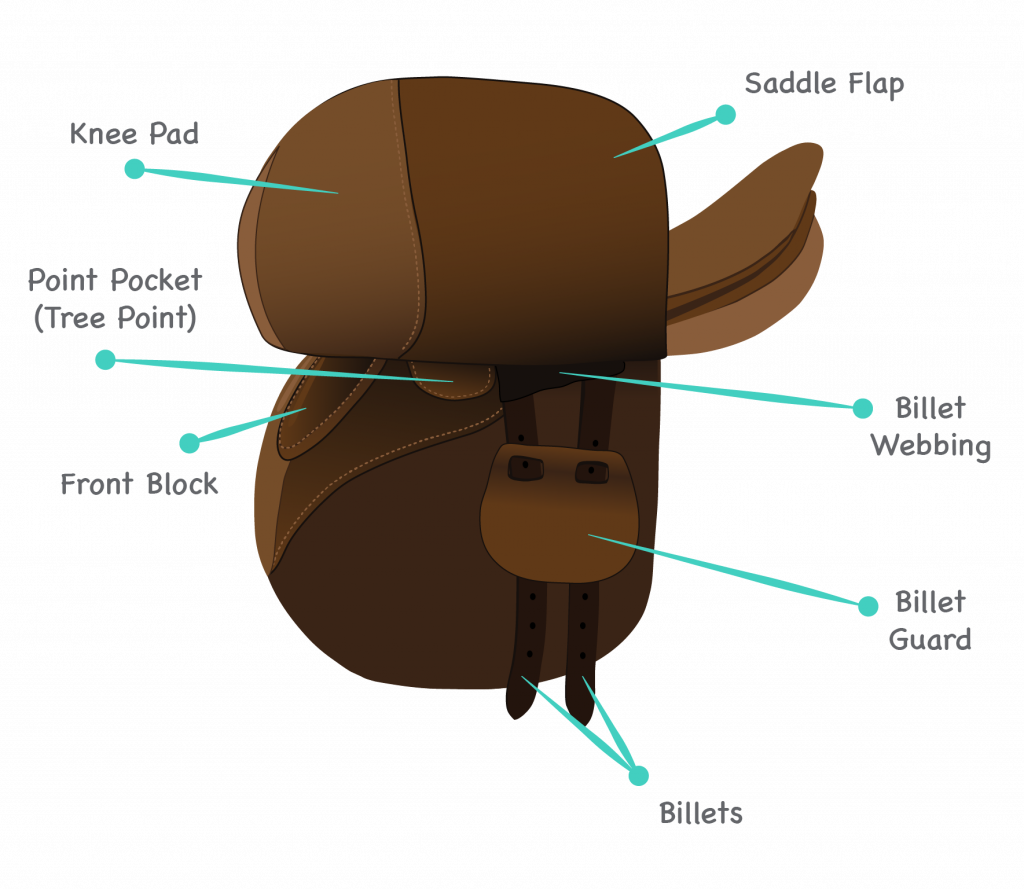
Horse Saddles & Parts Guide. Free Saddle Learning Games. Allpony
SWELL, POMMEL, AND FORK. The swell, also called the pommel or the fork, is the part of the saddle that sits on the front of the saddle at the base of the horn. It connects the bars (the two sides of the tree) of the saddle and provides a level of protection when riding. The swell helps keep the rider in the saddle if they are thrown forward and.

Tips on how to ride! How to put a saddle on a horse! 372013
2. Seat. This is the center part of the saddle where you sit. It's often padded, though it can be thinner on a bareback pad or a pack saddle. The seat also holds the overhanging parts of the saddle such as the stirrup and the knee pad. It sometimes has a dip in the middle for added comfort. 3.

Diagram of Western saddle parts. Saddles, bridles, tack
Below is a brief description of the parts of a Western saddle. They are in order, more or less, from the top of the saddle to the bottom. Fork / Swells / Pommel - This area, as you can tell, goes by several names. In a Western saddle this area is commonly referred to as the fork or swells, and is occasionally referred to as the pommel.
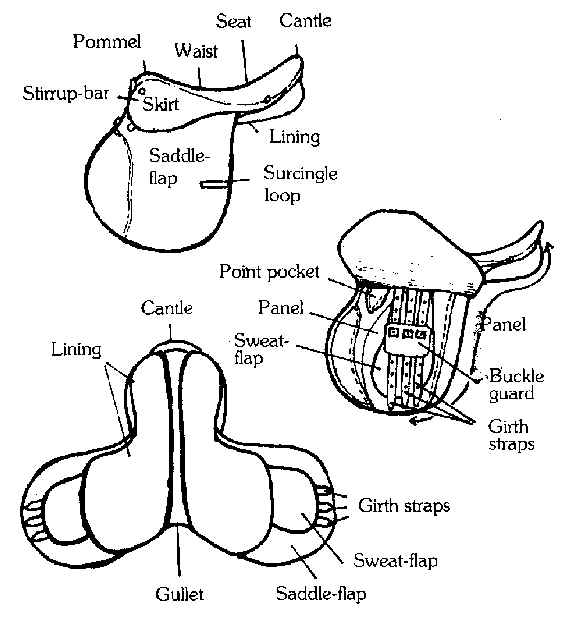
The Equus Ally Tack 'Em Up! The English Saddle
Parts of an English Saddle Seat: Purpose: The seat is where the rider's cheeks rest during riding. It shouldn't be too cushioned, but instead provide even support for the rider. Location: The saddle's seat is located on the top of the saddle. Cleaning: To care for the saddle seat, regularly wipe it clean with a damp cloth to remove dirt and sweat. Use leather conditioner to keep it.
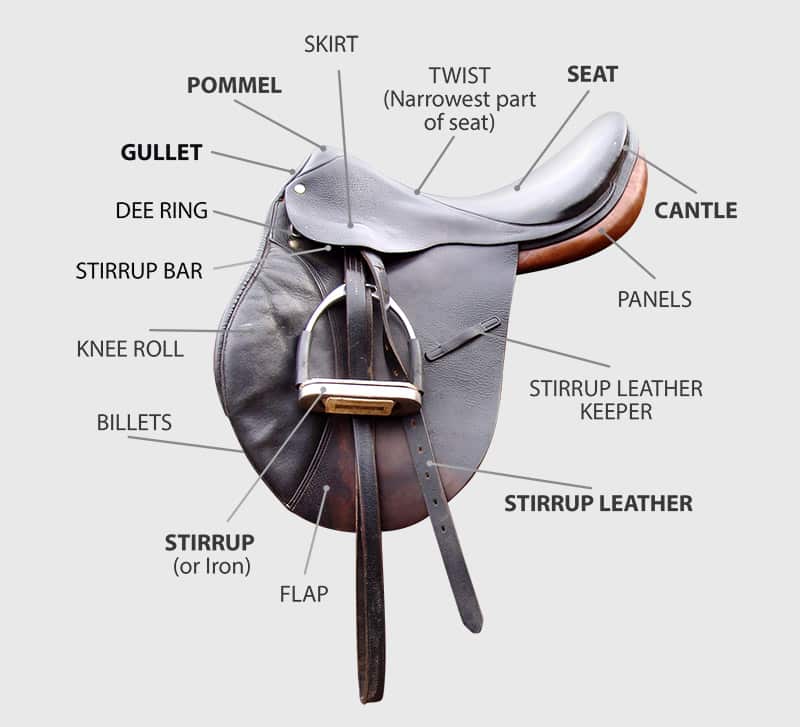
How To Buy And Fit Your Horse’s Saddle Horse FactBook
Test your skills on labeling the parts of the saddle and bridle for both English and western riding! Fill in each part on the diagrams, then check your work with the answer key below. These illustrations are reprinted with permission of the Certified Horsemanship Association and illustrator Susan Harris. They are part of Level 1 of the

Horse and Saddle Diagrams Epic Field Notes
Parts of the Western Saddle. What are the names of the parts of a Western Saddle? There are lots of different types of Western saddles. Horse Saddle Parts Diagram below shows the parts of a saddle used for Western riding. Parts of a western horse saddle includes: Gullet; Saddle Seat; Seat jockeys; Rear Billet strap; Front cinch; Back cinch.
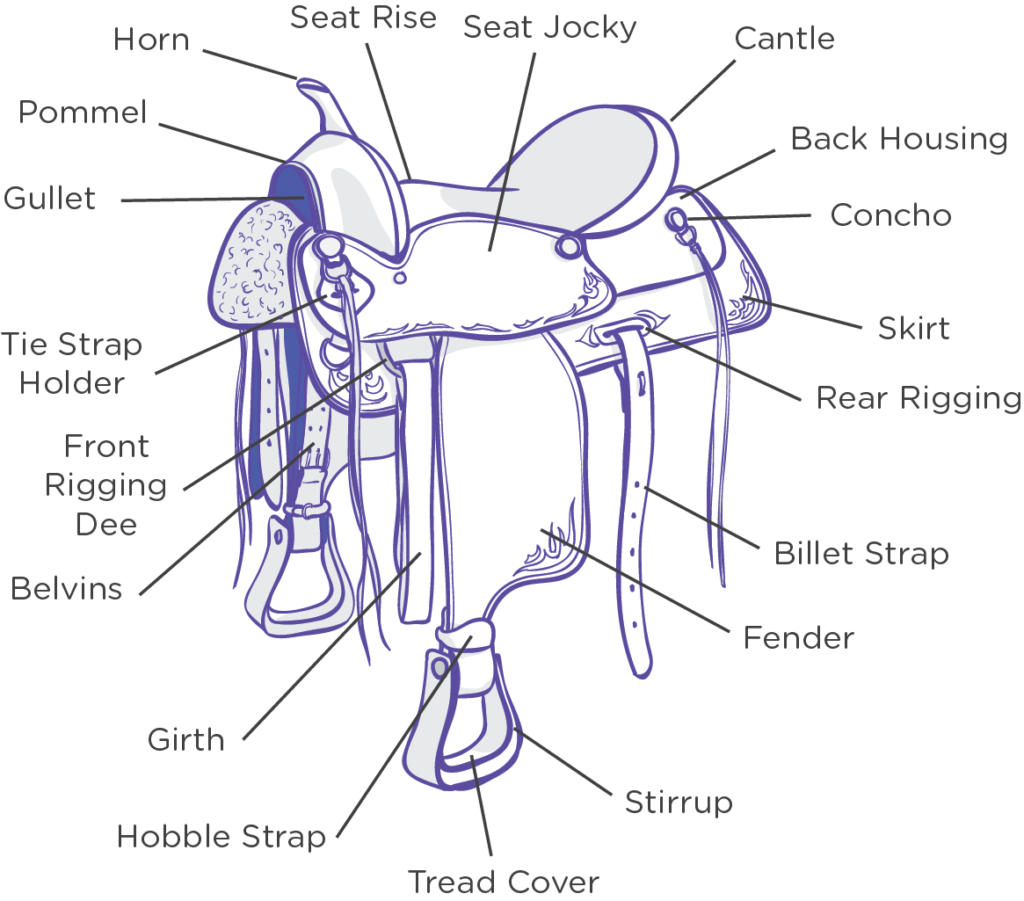
Can you put English stirrups on a Western saddle?
The saddle swell or fork (or, if you're English, pommel) is the part of the saddle that holds together the bars of the tree. It also supports the horn. There are three different styles of swells: the A fork (or "slick fork"), the swell fork, and the undercut swell fork. Early Western saddles were usually made with an A fork, but the swell fork.
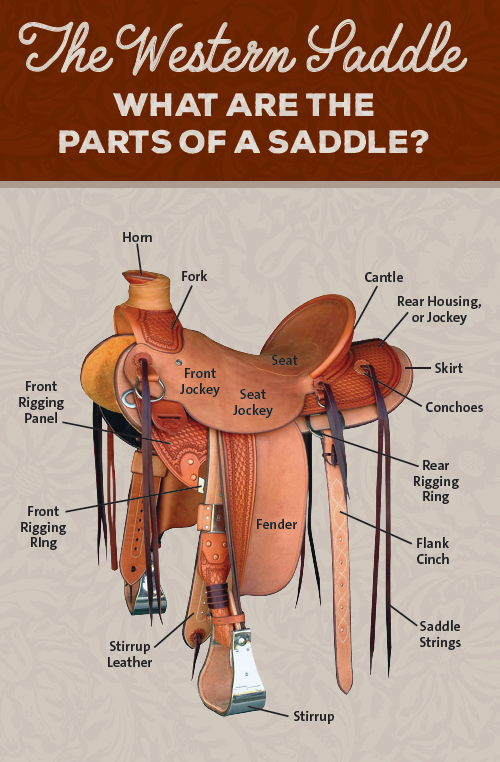
Parts of a Western Saddle and the Variations Center of the West
Initially, the tree's material is made up of wood, but there are synthetic variants, too, like plastic and fiberglass. It is mostly handmade. Parts of a western saddle tree include the fork, the cantle, two bars that join them both, and the horn erected over the fork. The two bars are the foundation for the saddle seat and run along the horse.
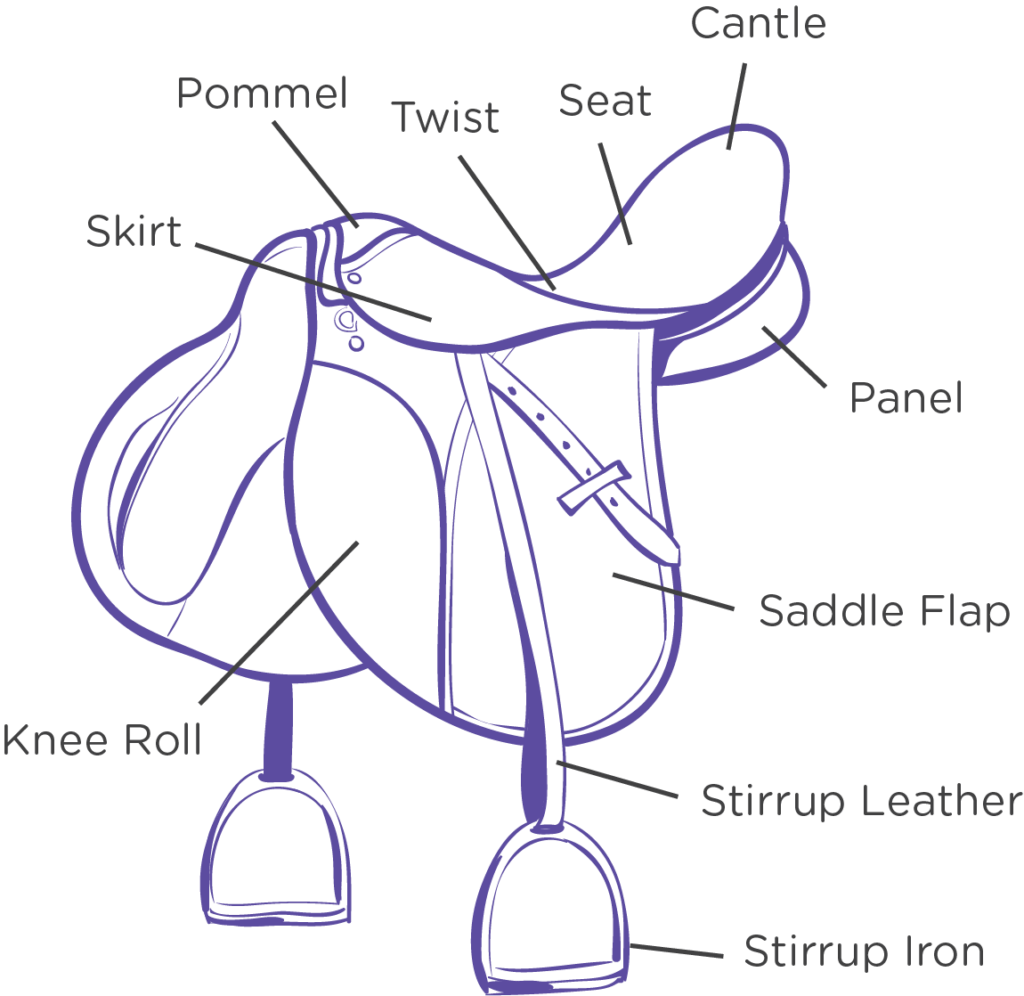
Can you put English stirrups on a Western saddle?
Parts of a Western Saddle The western saddle is an iconic symbol of the American West and has been used by cowboys and riders for generations. With its intricate leatherwork, intricate metalwork and variety of shapes and sizes, the western saddle is a unique and beautiful piece of art. But beyond its aesthetic appeal, the western saddle is also a very functional tool for horseback riding.
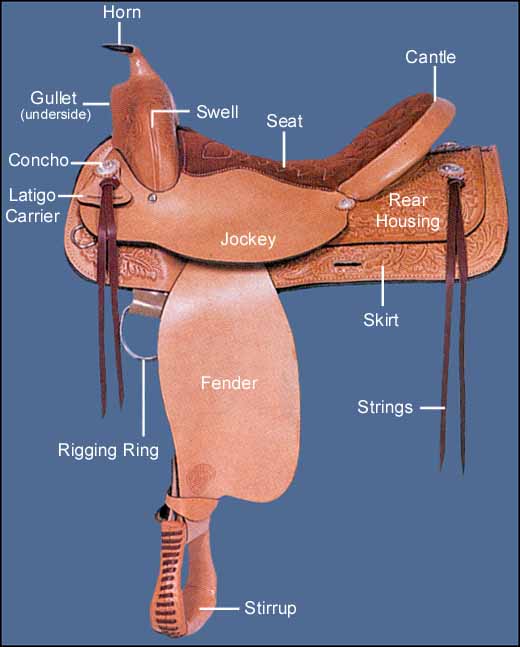
Tack
Your Complete Guide to Saddle Rigging. Trail Ride Destinations. Parts of the Saddle - The Seat. Parts of the Saddle - The Gullet. Parts of the Saddle - The Swell (or Fork or Pommel) Interactive Western Saddle Parts Diagram. Parts of the Saddle - The Fenders. Parts of a Saddle - The Cantle. Parts of the Saddle - The Stirrups.
16 Best Images of Horse Saddle Parts Worksheet Western Horse Saddle
Parts of the saddle diagram | Click the labels to learn more. Satisfaction Guaranteed. Exceeding expectations each and every order.. Cantle, Horn, and Saddle Bags Work & Riding Gloves Saddle/Leather Care Products Silver and Saddle Parts Western Toys Grooming and Horse Health Supplies Tack by Manufacturer English Tack.

Pin on Education
The English riding saddle is designed to give close contact between horse and rider, while elevating the weight of the rider from the horse's back to protect their spine. A well-fitting saddle makes carrying weight much more comfortable for the horse, and helps the rider to maintain a well-balanced position.. English riding saddles are incredibly complex pieces of kit with many parts.

english saddle parts HORSE COURSES ONLINE
Twist - English saddles can have a narrow, medium, or wide twist depending on the rider's preference. It is the section of the saddle that sits just below the pommel and determines how the saddle will feel between the rider's legs. Knee Roll - the knee roll is at the front of the saddle flap and is purely for comfort.